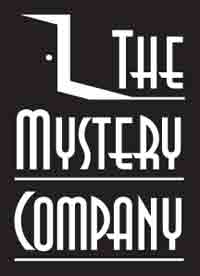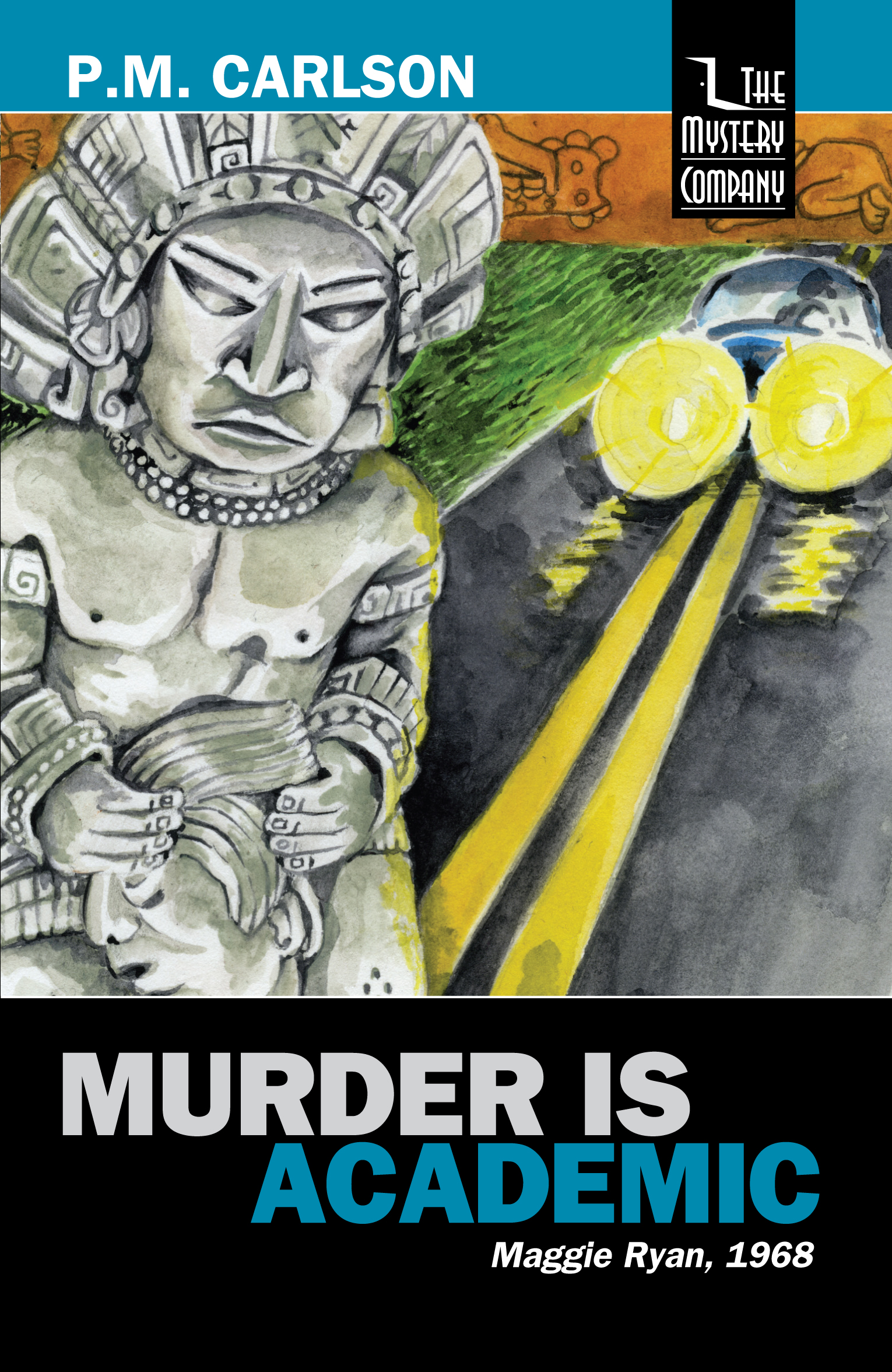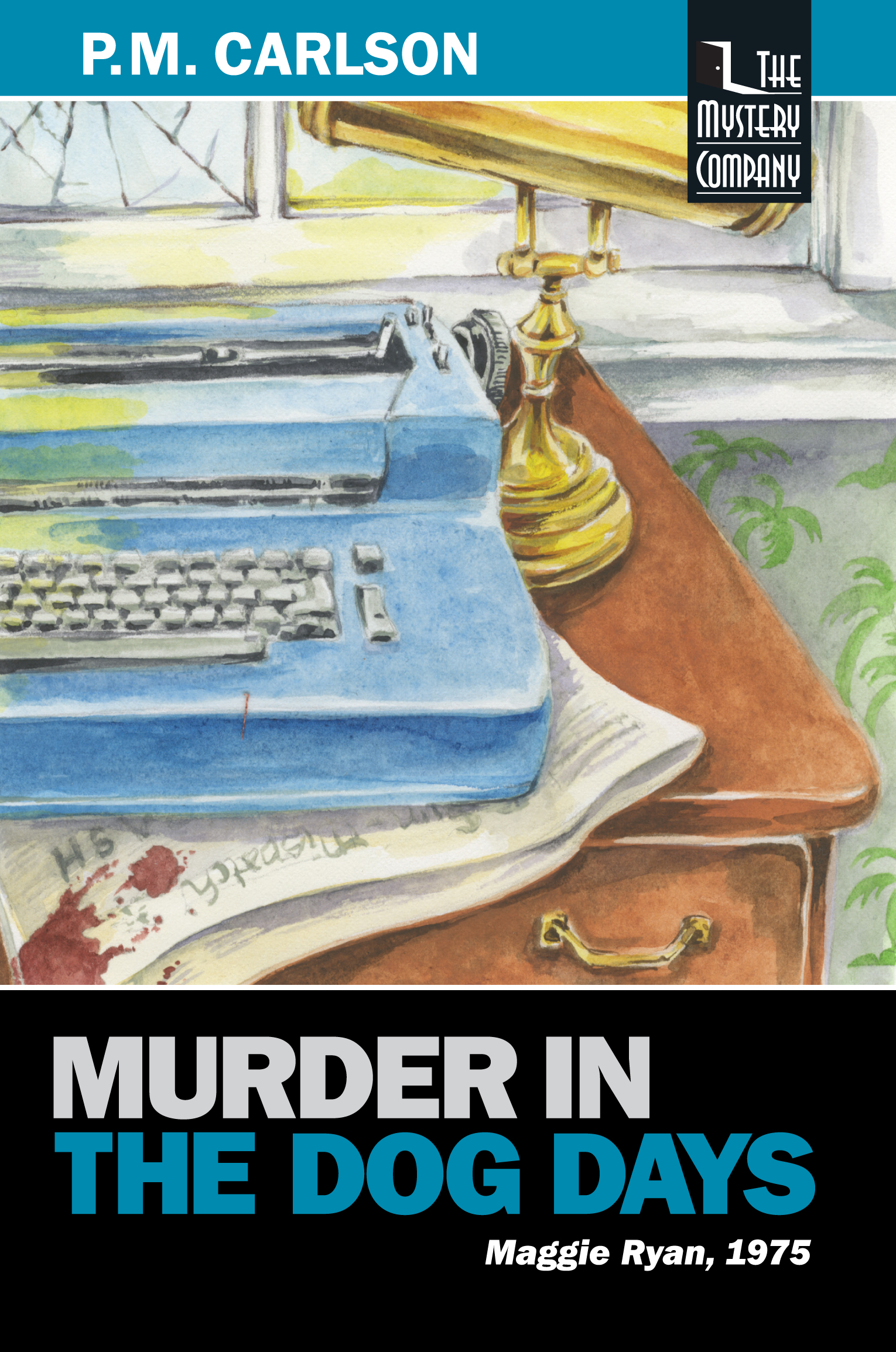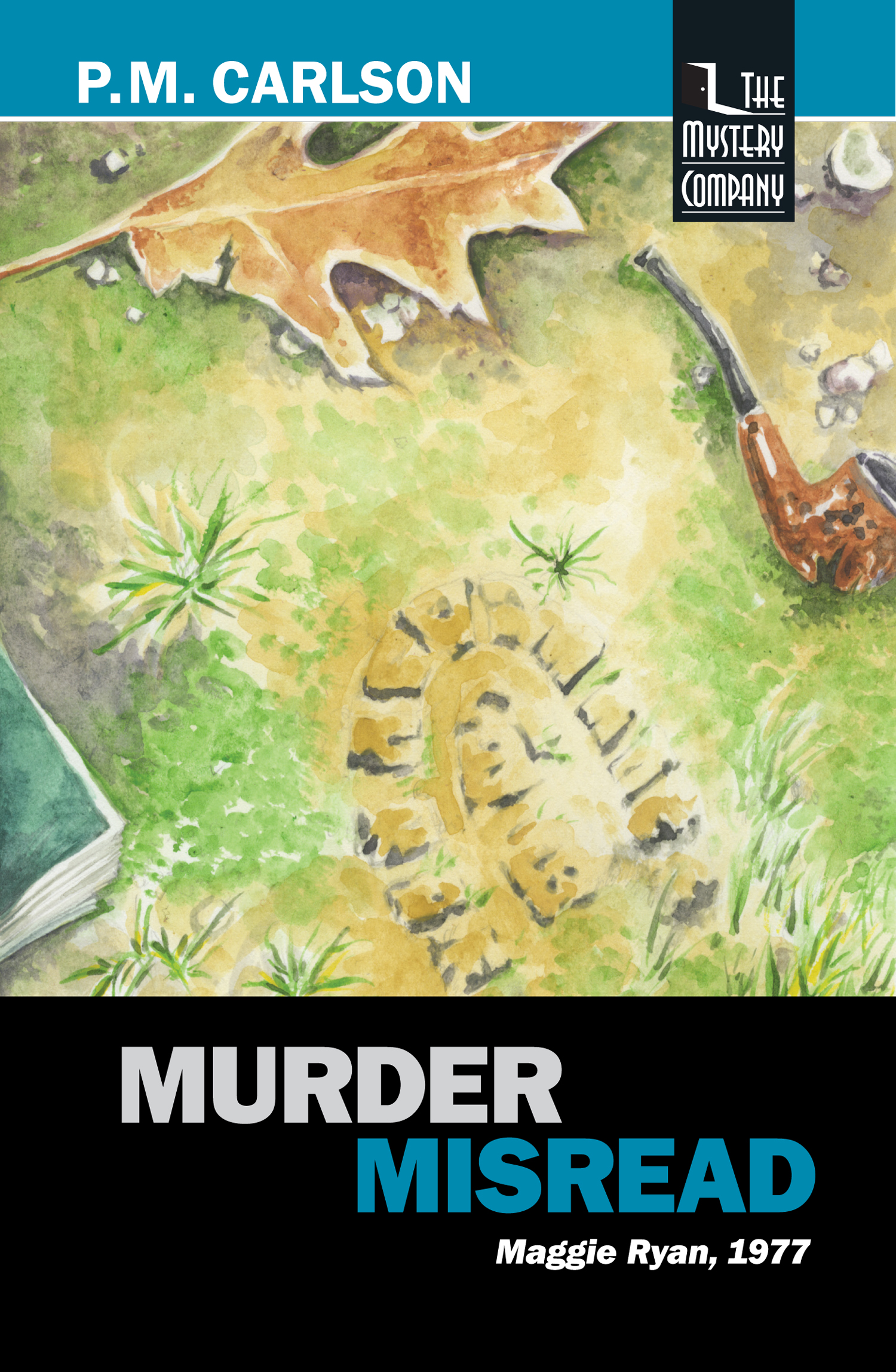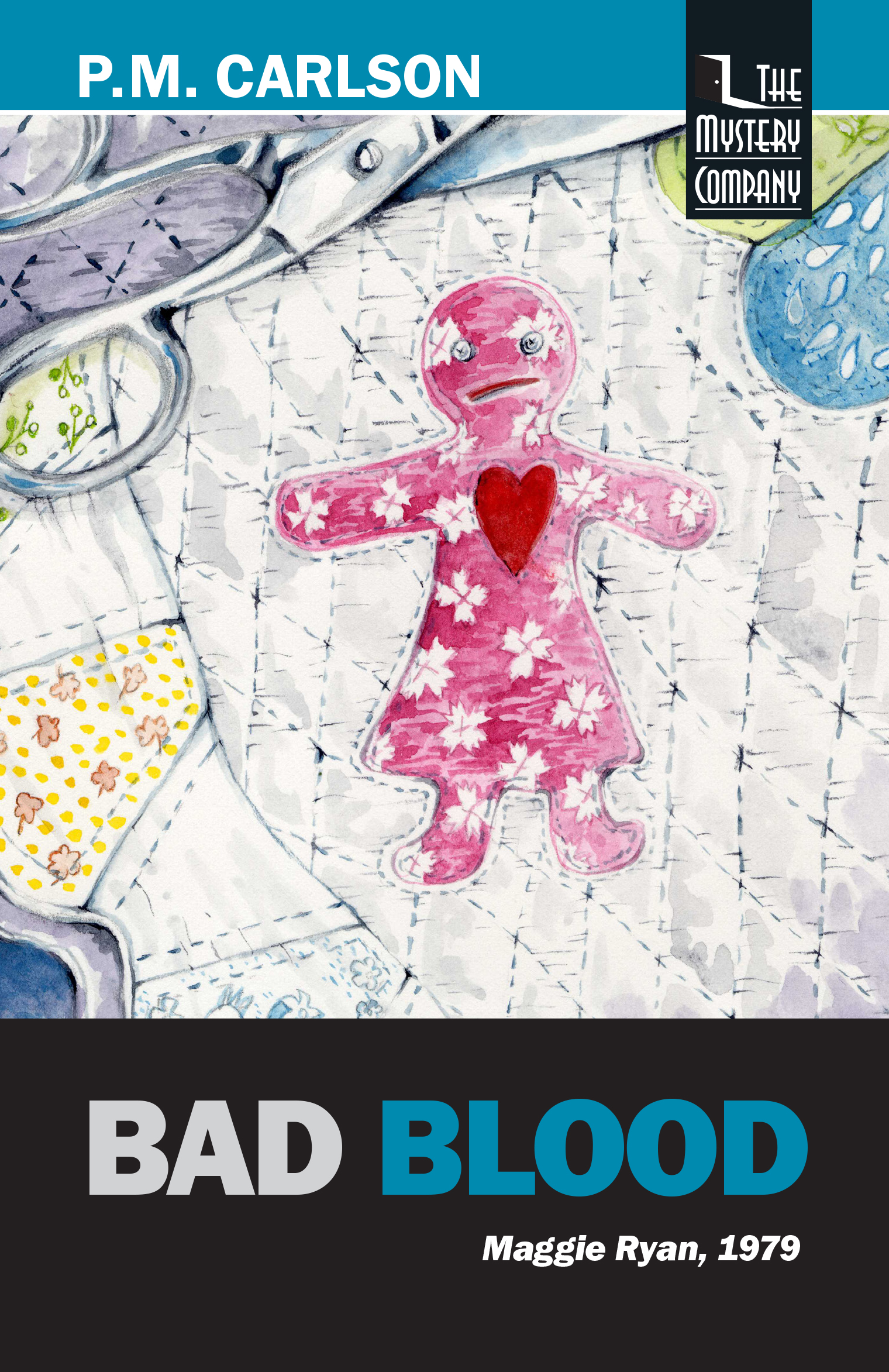We are delighted to welcome P.M. Carlson's Maggie Ryan series to The Mystery Company.
We asked Pat to comment on the reissue of these novels, first published in the late 1980s and set in the 1960s
In the sixties and seventies in upstate New York, I was young and busy. I worked backstage on many college plays, married, earned a bachelor’s degree, read mysteries, traveled to Spain and Scandinavia, had two babies, earned a master’s degree, spent a year in Paris, read mysteries, traveled to Egypt and eastern Europe, saw lots of plays, earned a Ph.D., raised my boys, served on city committees, restored a Victorian house, read more mysteries, taught college-level statistics and psychology — and in my spare time, tried to follow the swirl of changes taking place around my family and my divided, angry country. War protests, civil rights marches, feminism, gay rights, environmentalism. Woodstock, the Beatles. Political murders, including my classmate Michael Schwerner, registering blacks to vote in Mississippi. Also President Kennedy, Martin Luther King Jr., Bobby Kennedy.
In 1979, we moved to Indiana. The boys were more independent, my other duties reduced to restoring an Indiana Victorian house and co-authoring a textbook about behavioral statistics, and I decided to start at last on the mystery I’d secretly hoped to write someday. The detective, I thought, should be a mom like me, because it didn’t seem fair that mothers didn’t get to be heroes. More often they were obstacles in the hero’s way, saying “Don’t get hurt, honey.” But most moms, I knew, were too busy for such things. What kind of woman would become a mom who solved murders?
To find out, I started the Maggie Ryan mysteries when she was young — and she dragged me right back to the sixties. I can see why I needed to revisit those chaotic shifting years. I had to dig into questions of morality and identity that I’d glanced at only superficially as my busy life zipped along. For me, the eight Maggie Ryan mysteries were more than entertainments, more than psychological studies of how we flawed, resilient human beings cope with injustice, crime and death — though I hope they were those things too. The books were a chance for me to revisit a shifting America that I’d lived through but hadn’t processed. It was as though, when I finally had time to take a deep breath and look back at those years, I’d asked, “What the hell just happened?”
And Maggie, ever curious, had answered, “Let’s investigate!”
Now, twenty years after the books were first published, forty years after the stories took place, the country is again divided and angry. Both the Tea Party people and the Occupy Wall Street people are unhappy with the way things are working out. And most of the questions of the sixties and seventies are still with us, in slightly different form. The military draft is gone, but our troops still return from war with emotional as well as physical scars. Gays have rights on paper, but are still terrorized and discriminated against. Children are still abused. women are still raped. And it’s still hard to get a deep understanding of the issues as they fly by.
Revisiting the Maggie stories reminds me of what has happened, what’s yet to do, and that we flawed, resilient humans are still trying to cope.
— P.M. Carlson
“How great that Patricia Carlson’s entire Maggie Ryan series is back in print! She’s been a role model for women since the beginning and I loved watching her merge marriage and children with her talent for solving mysteries.”
Author photo © by Kathy Morris
P.M. Carlson taught psychology and statistics at Cornell University before deciding that mystery writing was more fun. She has published twelve mystery novels and over a dozen short stories. Her novels have been nominated for an Edgar Award, a Macavity Award, and twice for Anthony Awards. Two short stories were finalists for Agatha Awards. She edited the Mystery Writers Annual for Mystery Writers of America for several years, and served as president of Sisters in Crime.
Books by P.M. Carlson:
Audition for Murder: Maggie Ryan, 1967 (1985)
Murder Is Academic: Maggie Ryan, 1968 (1985)
Murder Is Pathological: Maggie Ryan, 1969 (1986)
Murder Unrenovated: Maggie Ryan, 1972 (1988)
Rehearsal for Murder: Maggie Ryan, 1973 (1988)
Murder in the Dog Days: Maggie Ryan, 1975 (1991)
Murder Misread: Maggie Ryan, 1977 (1990)
Bad Blood: Maggie Ryan, 1979 (1991)
The Marty Hopkins Series
Gravestone (1993)
Bloodstream (1995)
Deathwind (2004)
Crossfire (2006)
Short fiction
Renowned Be Thy Grave, or The Murderous Miss Mooney (1998)
For more information, visit: www.pmcarlson.net
